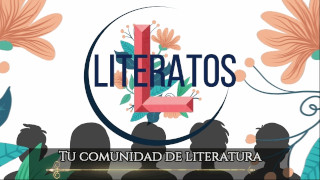
El libro que les presento hoy pertenece a un autor que pudiera decirse que no escribe, sino que corta, rasga, deja marcas en la página como un cuchillo en la madera blanda de una mesa de cocina.
Yo leí sus cuentos, como un hombre que entra a un barrio que no conoce, un barrio de calles torcidas y sombras largas, que duele en los huesos ese barrio, en la memoria antes de siquiera haberlo pisado, porque estos no son relatos, son otra cosa, son la ciudad misma escrita, Odesa, que respira con pulmones cansados y huele a pescado y a polvo y a sudor de caballo, una ciudad que no se la puede mirar de lejos, hay que meterse en sus calles, hay que caminarla con miedo y con rabia, pero una rabia antigua y silenciosa como una piedra en el zapato, cuando se desanda por estas páginas.
Warm greetings, friends of Hive Book Club!!!
The book I present to you today belongs to an author who arguably doesn't write, but rather cuts, tears, leaves marks on the page like a knife on the soft wood of a kitchen table.
I read his stories like a man entering a neighborhood he doesn't know, a neighborhood of crooked streets and long shadows, that neighborhood aches in my bones, in my memory before I've even set foot in it, because these aren't stories, they're something else, they're the written city itself, Odessa, which breathes with tired lungs and smells of fish and dust and horse sweat, a city that can't be seen from afar; you have to enter its streets, you have to walk through it with fear and rage, but a rage as ancient and silent as a stone in your shoe, when you retrace these pages.

Benya el Rey, es un mito de barrio tejido con retazos de miedo y de respeto, un gánster que huele a colonia barata y a sangre seca y a poder, que manda en Moldavanka no por la fuerza bruta sola sino por el carisma siniestro del miedo, por el respeto mudo que nace del relámpago plateado de la navaja, Bábel lo muestra, lo pone ante tus ojos como quien muestra una moneda sacada de un cadáver, y así hace con todos, con las prostitutas de sonrisa falsa y los contrabandistas de mirada evasiva y los mendigos que cargan con una dignidad de príncipes destronados, nadie se salva en estas páginas y nadie es condenado del todo, simplemente están ahí, existen con la rotunda y terrible obstinación de los que no tienen otro lugar al que ir.
In Odessa Tales, the city isn't a set, no, it's just another character, with rough hands and dirty nails and a tired gaze that has seen it all and isn't surprised by anything. It's alive, dirty and alive, and filled with constant noise, shouting and shady commerce and bodies colliding in the damp darkness of courtyards. Each story is nothing more than a poorly lit corner of that city, a brusque gesture captured at the precise moment before it turns into violence or laughter. There's no story to follow like a thread. There's a world to inhabit, a heavy and tangible world. And that's what captivated me: the absence of plot, the overwhelming presence of atmosphere, a tension as sharp as a razor's edge, a truth that bites out, brief and ferocious.
Benya the King is a neighborhood myth woven from scraps of fear and respect, a gangster who smells of cheap cologne, dried blood, and power, who rules Moldavanka not through brute force alone but through the sinister charisma of fear, through the silent respect born from the silver flash of a knife. Babel shows him, places him before your eyes like someone showing a coin taken from a corpse, and it does so with everyone, with the prostitutes with false smiles, the smugglers with evasive glances, and the beggars who carry the dignity of dethroned princes. No one is saved in these pages, and no one is ever completely condemned. They are simply there, they exist with the absolute and terrible stubbornness of those who have nowhere else to go.

Bábel no desarrolla, no explica demasiado, su economía de palabras no es pobreza, es densidad, cada línea pesa como un ladrillo, cada palabra importa, tiene su lugar y su razón de ser, y lo que calla, lo que deja en el blanco implacable de la página, duele más, mucho más, que lo que dice.
La elipsis es su técnica narrativa por excelencia, no hay transiciones suaves, no hay contexto que te prepare, de pronto estás en un aula con olor a tiza y a infancia, y en la línea siguiente, sin aviso, en el despacho obsceno de un banquero de papada sudorosa que susurra promesas húmedas a una cantante de pechos exhuberantes y voz de oro, y no hay explicación, no la hay, pero no hace falta, porque Bábel confía en que el lector, puede llenar los huecos con su propio vértigo, con su propio miedo, puede entender sin que te lo digan, puede oler el miedo y la avaricia y la lujuria sin que se las describan.
Este libro obliga a leer lento, a volver atrás con el dedo sobre la línea, a releer y no por dificultad, sino por respeto. Cada frase es un mundo completo, autónomo, un universo contenido en un puñado de palabras.
The narrating voice forks in time; sometimes it's that of a wide-eyed child, absorbing the world with a curiosity that is in itself a form of courage, and sometimes it's that of a man who remembers with a bitter irony, an irony that serves as a shield against the pain of memory. This mixture gives air to the text, gives it depth and resonance. There's no sentimentality here, no room for it, nor cynicism. There's only a dry melancholy, a harsh tenderness without sweetness, a sharp criticism but no sermon, all said through gritted teeth, in the silences.
Babel doesn't develop, doesn't explain too much. Its economy of words isn't poverty, it's density. Each line weighs like a brick, each word matters, has its place and its reason for being, and what it leaves unsaid, what it leaves in the implacable white of the page, hurts more, much more, than what it says.
Ellipsis is her narrative technique par excellence. There are no smooth transitions, no context to prepare you. Suddenly you're in a classroom that smells of chalk and childhood, and on the next line, without warning, you're in the obscene office of a sweaty-chinned banker whispering clammy promises to a singer with lush breasts and a golden voice. And there's no explanation, there isn't, but there's no need, because Babel trusts that the reader can fill in the blanks with their own vertigo, with their own fear. They can understand without being told, they can smell fear, greed, and lust without being told.
This book forces you to read slowly, to go back with your finger on the line, to reread, not out of difficulty, but out of respect. Each sentence is a complete, self-contained world, a universe contained in a handful of words.

En estas páginas no hay romanticismo, no hay idealización que valga, sólo hay crudeza, pero una crudeza estilizada, transformada en arte, y eso, lejos de ser preciosismo vacío, es una forma de verdad, quizá la más pura, una verdad que no grita, no se exhibe en una vitrina, se deja ver de reojo, en un gesto, en una frase trunca, en el silencio entre dos palabras.
Las metáforas de Bábel no adornan, revelan, son filosóficas, cortantes, cuando dice que la ciencia de la escuela no son más que "garabatos al margen de un libro auténtico", está diciendo mucho más, está hablando de una cosmovisión entera, del desprecio por lo formal y lo académico, de la veneración por lo vivido, lo sudado, lo sufrido.
Porque Odesa era una ciudad judía, hervidero de vida y de dolor, y Bábel, un judío que escribe en ruso, la conoce desde dentro, desde la herida abierta, desde el temblor, desde el filo de la navaja, y sus personajes no son inventados, no, son reales, palpables, son parte de su mundo, de su memoria, de su propia carne.
Language is another battlefield for this author, who can at times be vulgar and vulgar, or can rise to the poetic, crude, and then with a surgical precision, all at once, in the same breath. This creates a tension that is unresolved, unrelieved, endured page after page, sometimes uncomfortable, because Babel speaks of harsh things: crime, bodies bought and sold, dirty power. But the prose is polished, elegant, almost classical, and this contradiction, far from softening the blow, sinks it deeper, drives it into your gut.
In these pages, there is no romanticism, no idealization worth mentioning; there is only rawness, but a stylized rawness, transformed into art. And that, far from being empty preciosity, is a form of truth, perhaps the purest, a truth that doesn't shout, isn't displayed in a showcase, but reveals itself out of the corner of your eye, in a gesture, in a truncated sentence, in the silence between two words.
Babel's metaphors don't embellish, they reveal; they are philosophical and cutting. When he says that school science is nothing more than "scribbles in the margins of an authentic book," he's saying much more. He's speaking of an entire worldview, of contempt for the formal and the academic, of veneration for what has been lived, what has been sweated out, what has been suffered.
Because Odessa was a Jewish city, a hive of life and pain, and Babel, a Jew writing in Russian, knows it from within, from the open wound, from the trembling, from the razor's edge. And his characters aren't invented, no, they are real, palpable, they are part of his world, his memory, his very flesh.

Hay un humor cruel, triste, absurdo, el humor del que se ríe porque ya no le queda otra, porque la vida es tan grotesca y tan ridícula que sólo se la puede mirar con una ironía que es el último refugio de la cordura, y Bábel domina esa ironía, la maneja como un maestro, y cada cuento tiene al menos una frase, una línea que te deja pensando, que te deja vacío.
Bábel fue periodista, fue escritor, fue judío, fue soviético con fe, defendió la revolución con sus palabras, creyó en ella, y la revolución, al final, como una bestia hambrienta e ingrata, se lo comió, lo arrestaron, lo torturaron, lo ejecutaron en una celda fría durante las purgas de Stalin, y su obra quedó, su voz quedó, su ciudad quedó, testimonio mudo de un mundo devorado.
Cuentos de Odesa se publicó en 1931, es una colección que gira, que orbita alrededor de Benya Krik y su banda de bandidos, amos y señores de Moldavanka, la pobreza, la injusticia, el crimen...
Bábel dijo una vez que Tolstói, podía narrar minuto a minuto todo un día, la totalidad del tiempo, pero que él, Bábel, prefería contar los cinco minutos más intensos, los cinco minutos que contienen toda una vida, y eso se nota, se siente en la sangre al leerlo, cada cuento es corto, breve, explosivo, no sobra nada, no falta nada, todo está ahí, todo importa, todo pesa.
Cuentos de Odesa no deja moralejas, no hay lección, sólo la sensación, física, tangible, de haber estado en un lugar que ya no existe, que fue borrado del mapa y de la historia, pero que late todavía entre en estas páginas.
A Cuentos de Odesa hay que entrar con los ojos muy abiertos y el corazón aún más, hay que aceptar la ambigüedad, la crudeza sin paliativos, el silencio elocuente, pero si te dejas llevar, si aceptas el pacto tácito que Bábel te propone, el viaje vale la pena, aunque duela, aunque la marca que deje en ti sea para siempre.
The stories aren't long, but they're dense like black holes, intense. They're fragments, vignettes, moments stolen from the flow of time. And that's what makes Babel great. It doesn't tell stories with a beginning and an end. No, it captures moments, moments of pure and brutal life, and those moments stay with you, etched in your memory.
There's a cruel, sad, absurd humor, the kind of humor that laughs because there's no other choice, because life is so grotesque and so ridiculous that it can only be viewed with an irony that is the last refuge of sanity. And Babel masters that irony, wields it like a master, and each story has at least one phrase, one line that leaves you thinking, that leaves you empty.
Babel was a journalist, a writer, a Jew, a faithful Soviet, he defended the revolution with his words, he believed in it, and the revolution, in the end, like a hungry and ungrateful beast, devoured him. They arrested him, tortured him, executed him in a cold cell during Stalin's purges, and his work remained, his voice remained, his city remained, silent testimony to a devoured world.
Odessa Tales was published in 1931. It's a collection that revolves, that orbits around Benya Krik and his band of bandits, lords and masters of Moldavanka, poverty, injustice, crime...
Babel once said that Tolstoy could narrate minute by minute an entire day, the entirety of time, but that he, Babel, preferred to tell the five most intense minutes, the five minutes that contain an entire life, and it shows, it's felt in the blood as you read it. Each story is short, brief, explosive, nothing is left over, nothing is missing, everything is there, everything matters, everything weighs.
Odessa Tales leaves no morals, no lessons, only the physical, tangible sensation of having been in a place that no longer exists, that was erased from the map and from history, but that still beats within these pages.
You have to enter Odessa Tales with your eyes wide open and your heart even wider, you have to accept the ambiguity, the unmitigated harshness, the eloquent silence, but if you let yourself go, if you accept the tacit pact that Babel proposes to you, the journey is worth it, even if it hurts, even if the mark it leaves on you is forever.

🌱 © Copyright 2025 Argenis Osorio. Todos los derechos reservados/© Copyright 2025 Argenis Osorio. All rights reserved
🌱 For the visual design of the post I have used the following tools: my Samsung phone's camera, free versions of Canvas, Nano Banana and Banner Maker/Para el diseño visual del post he utilizado como herramientas: cámara de mi teléfono Samsung, versiones libres de Canvas, Nano Banana y Banner Maker
🌱 Mi idioma nativo es el español, traduzco al inglés con Google Translation /My native language is Spanish, I translate to English with Google Translation


Consider following our trail on HIVEVOTE by clicking on the image below. We thank all our supporters.

To all of you artists out here at HIVE! If you ever are lost, please join Bokura No Digital World at our Discord chat.





